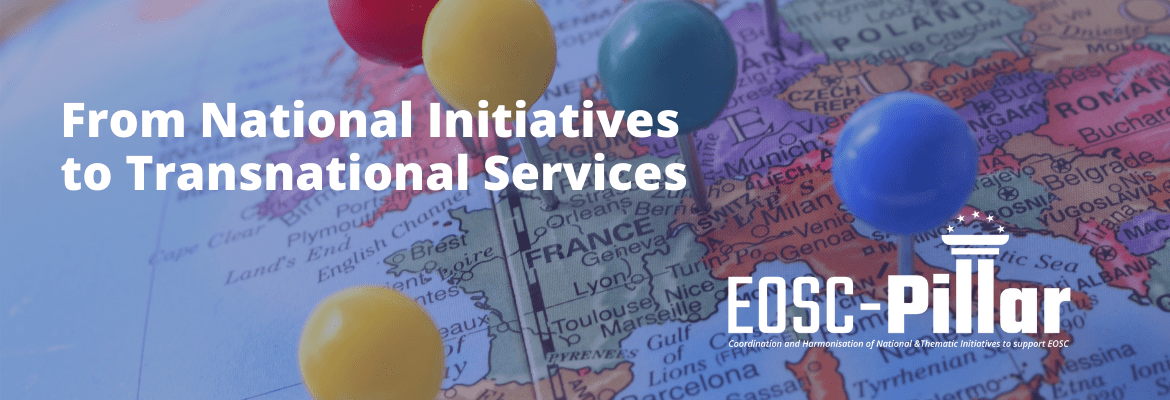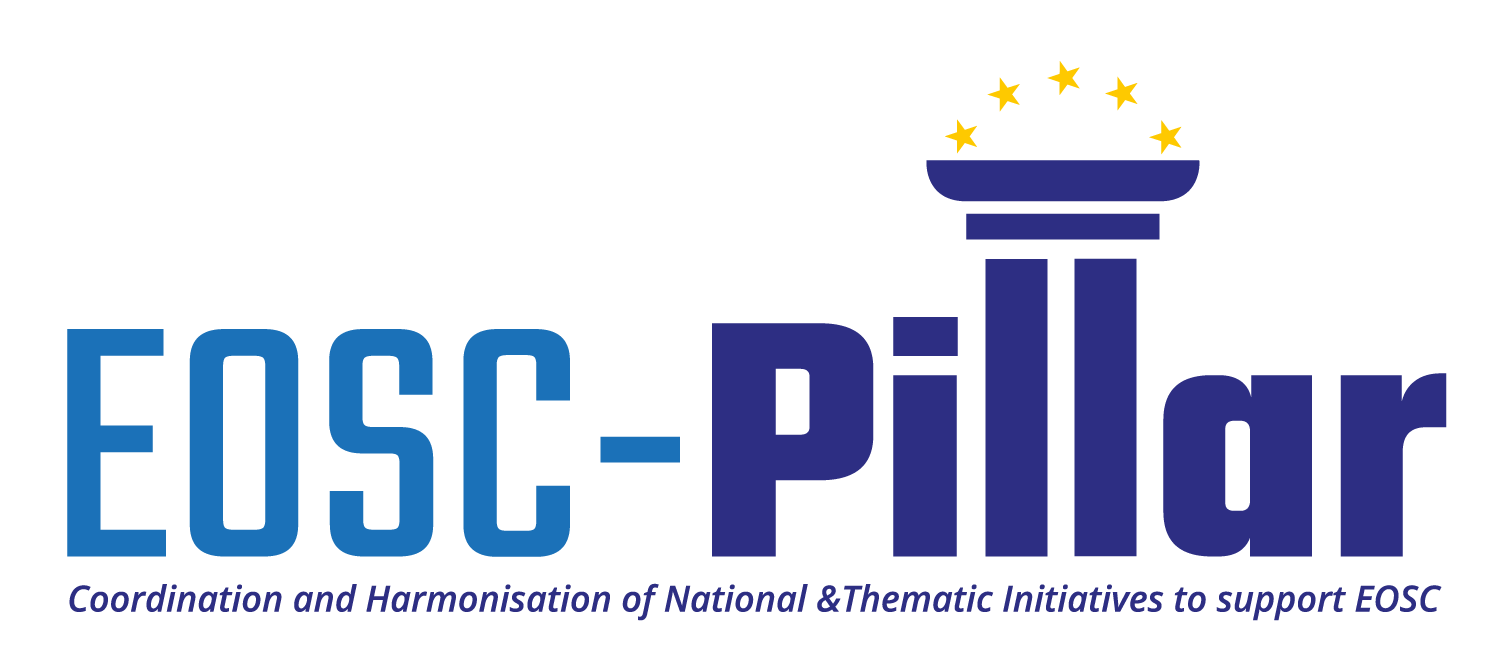
EOSC-Pillar: From National Initiatives to Transnational Services

The EOSC-Pillar "From National Initiatives to Transnational Services" Work Package (WP4) creates a policy and legal framework for the coordination of National initiatives.
The main objectives of this WP are:
- Build upon the findings of the studies performed by WP3 in order to highlight common policies and approaches adopted at the national level, that can be leveraged in coordinating the existing and forming national initiatives in the region;
- Highlight critical issues in the legal and policy framework of the countries that can hamper collaboration and interoperability, and suggest means to address these challenges;
- Explore cross-country federation opportunities and procedures, and define technical means in order to translate them into practice;
- Support the creation and strengthening of full-fledged national initiatives across countries and improve their level of representativeness;
- Provide a lean policy framework for the longer-term coordination in the federation;
- Define common tools and frameworks to describe, enroll, and support national service/data providers;
- Pose the founding stone of a National Service Registry per country, to be operated by the National Initiatives as a single entry point for national and trans-national non-commercial service providers, and a bridge towards the European Open Science Cloud;
- Coordinate with initiatives similar to EOSC-Pillar that address different European regions, in order to seamlessly inter-federate and ensure the highest levels of interoperability for initiatives and transnational services;
- Study one or more possible business model(s) for the National Initiatives and their services, building on the results of the survey and in collaboration with the use cases (WP6) and pilots (WP7), to obtain realistic information on implementation and operation costs of the services, as well as their scalability and sustainability in the longer term.
How the Work Package supports the development of EOSC
This WP creates a policy and legal framework for the coordination of National initiatives, that can then be extended to other countries. This work package defines a national service registry blueprint, to be implemented in each country and maintained by the national initiative. Registries are federated with each other and fully interoperable with the EOSC. It is the ambition of this project that, in the longer term, the national registries will incorporate the large majority if not the totality of relevant scientific data services in each country.
Read the Legal and Policy Framework and Federation Blueprint
Download the Legal Compliance for Researchers Checklist
The five steps
Coordinate evolving national initiatives
The reference model we are assuming for this coordination action is the federation, as the most suitable to maintain the maximum level of freedom for the national initiatives while allowing for interoperability and a lightweight model of shared management for the cross-national services. Federating the National Initiatives will involve not only the policy and legal framework, but also the technical aspects that will be addressed in detail in WP5 (data layer) and WP7 (infrastructure layer) and demonstrated by the use cases collected in WP6. The Federation is intended to become an interlocutor for the EOSC Governance, in order not only to receive information on technical and policies evolutions in the EOSC, but also to convey the feedback of one of its key stakeholders: the national initiatives, and through them, the national research communities.
Concertation with similar regional initiatives
As EOSC-Pillar’s long-term ambition is to unify under this federated model the national initiatives of the whole EU, the second step is to establish and maintain high levels of concertation with similar regional initiatives, namely the other projects approved under INFRAEOSC-05.
Consolidate national initiatives
The third step is to consolidate national initiatives, in order to guide them towards assuming more stable forms (e.g. from MoUs or SIGs to JRUs or even legal entities). This enables them to improve and detail internal policies and streamlining processes, as well as their representativeness and sustainability perspetives. By identifying and adopting interoperable solutions and technologies, national initiatives are then able to attain optimal levels of compliance with EOSC standards.
Define a common set of procedures and technical framework
The fourth step is to define a common set of procedures and technical framework to enroll and describe services at the national level and facilitate the passage from local/national service dedicated to a specific community to transnational service, extensible to new communities, for example via the EOSC Portal.
Identify a viable business model
The last step is to identify a viable business model to help ensuring the longer term sustainability of the national initiatives and of their inter-federation. A special attention will be dedicated to the implications, in terms of business model, of trans-national services: while a national service could have a relatively simple business model, and well-identified funding sources.
Don’t miss any updates, register for our newsletter and become a part of our EOSC-Pillar community.
Stay in touch with us! Follow us on Twitter and LinkedIn.



